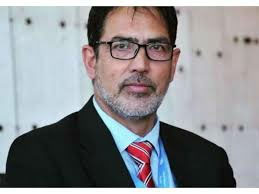Altaf Hussain Wani
Enforced disappearances are a serious problem in almost all regions of the world; however, in the conflict-affected regions like Kashmir the forced disappearance is being used as a political weapon to subjugate and silence the dissenting voices and instill a sense of fear in the society. The region that has undergone intermittent periods of sporadic violence since 1989 continues to be in the whirlwind of state oppression that has led to killings and forced disappearances of innocent Kashmiris by the Indian forces on an enormous scale. Decades’ long conflict had left tens of thousands of Kashmiris dead; more than 7000 bodies of missing persons still lay buried in unmarked and unknown mass graves unearthed in and around the Kashmir valley.
It was almost a decade back, that the International People’s Tribunal on Human Rights and Justice in Kashmir released an eye-opening report on mass graves in the IoK. The report titled ‘Buried Evidence: Unknown, Unmarked, and Mass Graves made a shocking revelation about the existence of 2,700, unnamed mass graves, containing 2,943 bodies, across 55 villages in Bandipora, Baramulla, and Kupwara districts of Kashmir. “Of these, 87.9 percent were unnamed, 154 contained two bodies each and 23 contained between three to 17 bodies”, the report said adding that the government of India should allow an independent inquiry to ascertain the facts.
Years have passed but family members of enforced disappeared persons still continue to wander from pillar to post trying to exercise their rights to know the whereabouts of their loved ones. Social, psychological, legal, and financial effects of this tragedy of immense proportions have made their lives a living hell. The painful saga of half-widows is yet another off-shoot of this illegal and ignominious practice of enforced disappearance in Kashmir. As per reports the number of ‘half-widows’ in Kashmir are around 2,500. It is feared that the bodies buried in these unmarked graves are of the missing husbands of the half-widows who have been picked up from their homes and disappeared after getting killed in the custody of the Indian army. On July 10, 2008, the EU Parliament passed a resolution lending support for the investigations into the discovery of mass graves and enforced disappearances.
Unfortunately, the Indian authorities are reluctant to acknowledge the very existence of mass graves and to hold an inquiry despite the fact that the State Human Rights Commission in 2009 took a suo moto notice of the report. A special investigation team that was tasked to conduct an inquiry confirmed the presence of 2,730 unidentified bodies buried across 37 sites in the three districts of north Kashmir. Citing lack of technology, expertise, and human resources the Indian government refused to conduct the investigations, even though the European Parliament had offered financial assistance to take it forward.
[The writer is Chairman Kashmir Institute of International Relations / Vice Chairman JKNF]










